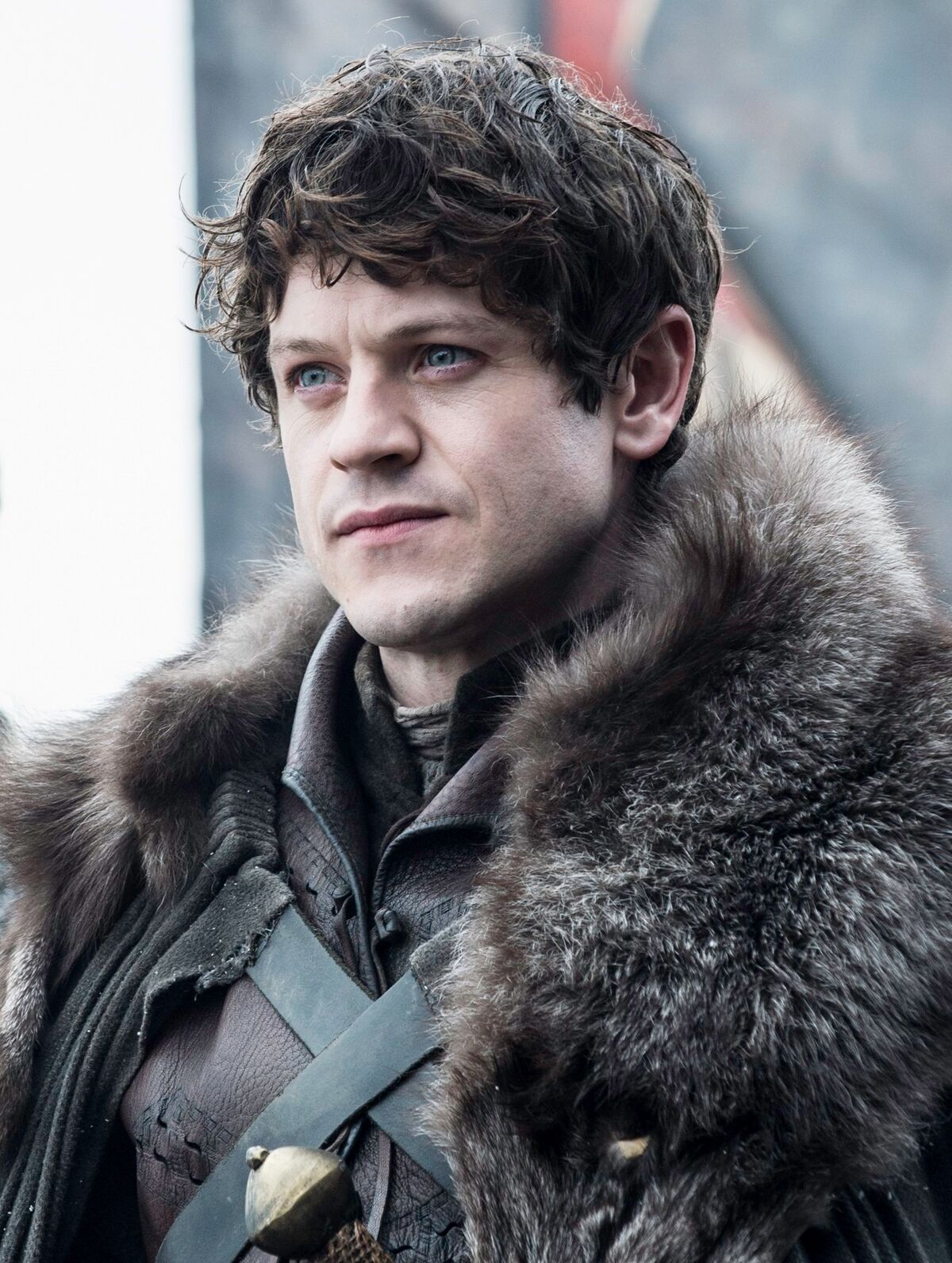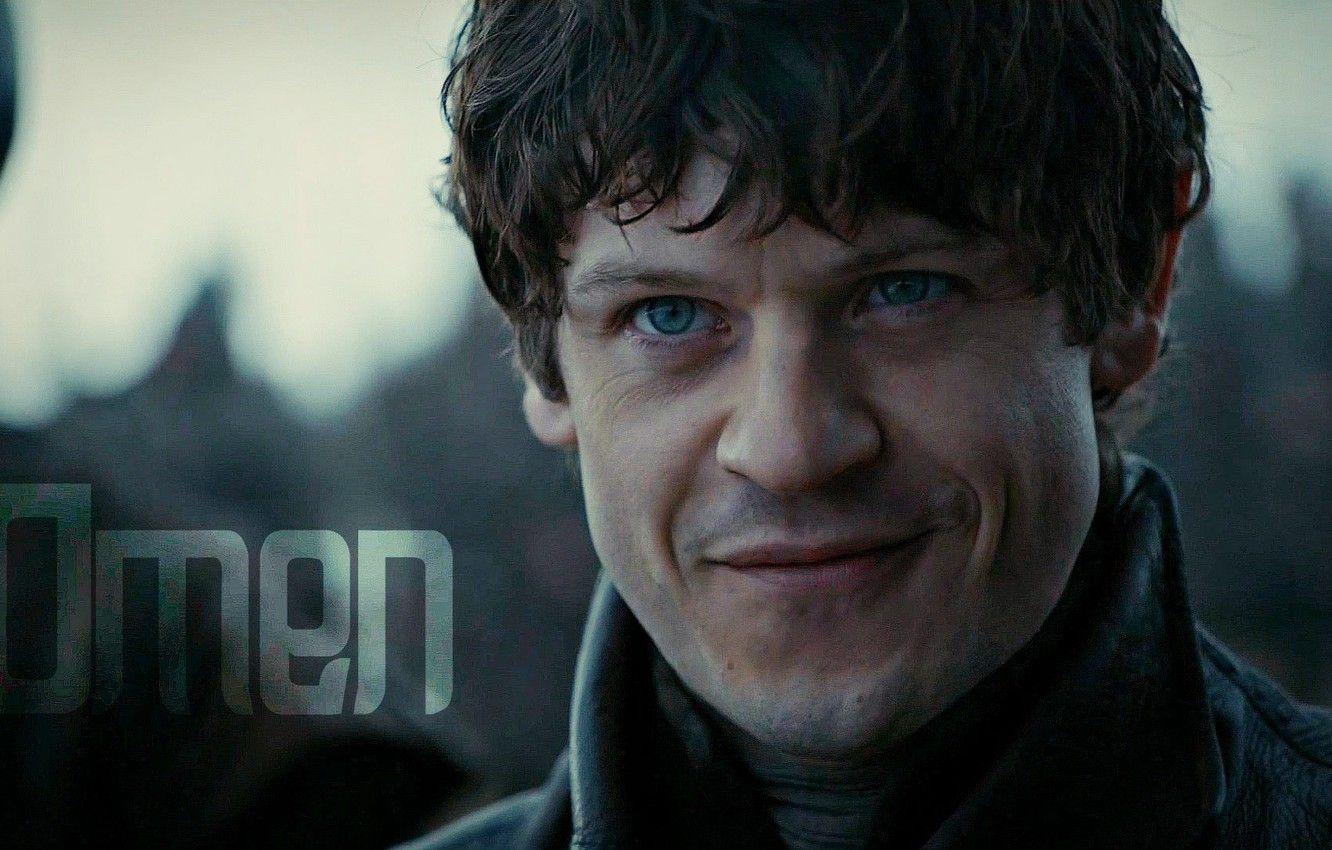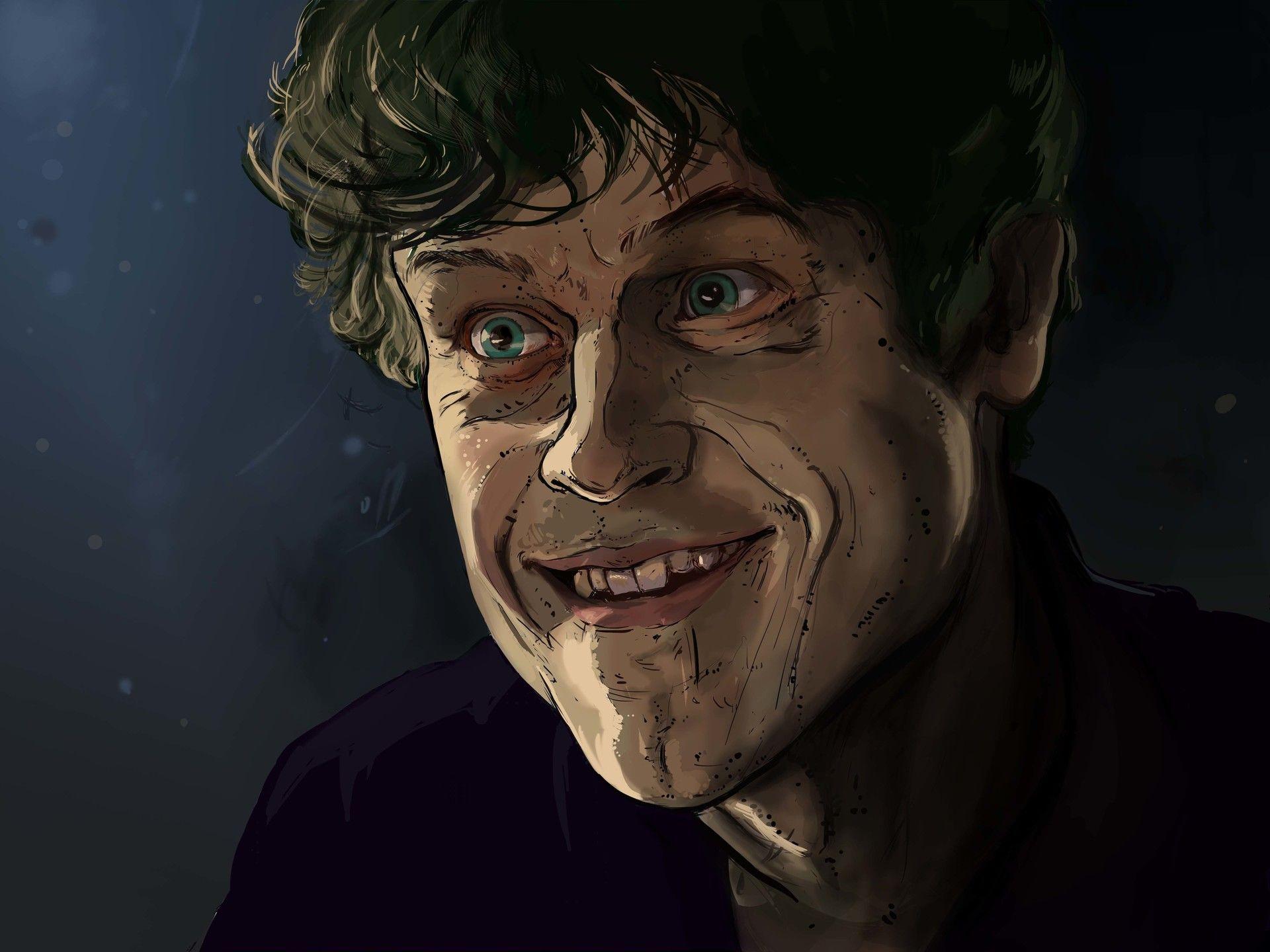Unmasking Ramsay Bolton: Game Of Thrones' Most Terrifying Villain
Table of Contents
- The Genesis of a Monster: Who is Ramsay Bolton?
- Iwan Rheon: The Man Behind the Monster
- The Brutal Upbringing: Forging a Sadist
- Ramsay Bolton's Reign of Terror: Key Actions and Psychological Warfare
- A Masterclass in Villainy: Ramsay Bolton's Impact on Game of Thrones
- The Psychology of Ramsay Bolton: Understanding the Darkness
- The Shocking Downfall: The Battle of the Bastards and Its Aftermath
- The Enduring Legacy of Ramsay Bolton
The Genesis of a Monster: Who is Ramsay Bolton?
**Ramsay Bolton is a fictional character** born from the brilliant, albeit dark, imagination of George R.R. Martin, appearing in his epic fantasy series *A Song of Ice and Fire* and its immensely popular HBO adaptation, *Game of Thrones*. He is introduced as the bastard son of Roose Bolton, the chillingly pragmatic and ruthless Lord of the Dreadfort. Initially known as Ramsay Snow – the traditional surname for bastards in the North – he quickly earned more ominous monikers such as "the Bastard of Bolton" and "the Bastard of the Dreadfort." His origins are as disturbing as his character. Ramsay Bolton was born from an act of horrific violence. Lord Roose Bolton, while hunting near the Weeping Water, encountered a miller's wife. After raping the newlywed woman, Roose callously killed her husband. Nine months later, a boy was born, a living testament to his father's depravity. This traumatic beginning, coupled with the brutal environment of the Dreadfort, laid the groundwork for the monstrous individual Ramsay would become. Despite his baseborn status, Ramsay harbored an intense desire to be recognized as a true Bolton, often referring to himself proudly as the "trueborn scion of the Dreadfort" and reacting violently to anyone who dared to remind him of his illegitimate birth. This deep-seated insecurity fueled much of his cruelty and his relentless pursuit of his father's approval and eventual usurpation of his position.Iwan Rheon: The Man Behind the Monster
Bringing a character as complex and abhorrent as Ramsay Bolton to life required an actor of exceptional talent, one capable of conveying both charming cunning and terrifying depravity. That actor was Iwan Rheon, a Welsh actor, singer, and musician, whose portrayal of Ramsay Bolton earned him global recognition and cemented his place in television history. Rheon's performance was so compelling that it often blurred the lines between character and actor, with many viewers finding it difficult to separate the two. His ability to switch from a disarmingly polite demeanor to a chillingly sadistic grin made Ramsay a truly unpredictable and terrifying presence on screen.A Brief Biography of Iwan Rheon
Born on May 13, 1985, in Carmarthen, Wales, Iwan Rheon's journey into the performing arts began at a young age. He first gained significant attention for his role as Simon Bellamy in the E4 series *Misfits*, where he played a shy, socially awkward character with the power of invisibility. This role showcased his versatility, allowing him to portray a character vastly different from the one that would later define his career. Beyond *Game of Thrones*, Rheon has built a diverse filmography. He starred in the British sitcom *Vicious* alongside Sir Ian McKellen and Derek Jacobi, demonstrating his comedic timing. His film credits include *Libertador*, *Driven*, and *The Dirt*, where he portrayed Mick Mars of Mötley Crüe. More recently, he has appeared in series such as *Riviera*, Marvel's *Inhumans* (where he played Maximus), and *Those About to Die*. In addition to his acting career, Rheon is an accomplished musician, releasing his debut album, *Dinard*, in 2015, showcasing his talents as a singer-songwriter. His multifaceted career highlights his artistic depth, making his transformative performance as Ramsay Bolton even more remarkable.Iwan Rheon's Personal Data
| Attribute | Details | | :----------------- | :------------------------------------------------------------------------------------------------------ | | **Full Name** | Iwan Rheon | | **Born** | May 13, 1985 (age 39 as of 2024) | | **Birthplace** | Carmarthen, Carmarthenshire, Wales | | **Nationality** | Welsh | | **Occupation** | Actor, Singer, Musician | | **Known For** | Portraying Ramsay Bolton in *Game of Thrones*, Simon Bellamy in *Misfits* | | **Debut Album** | *Dinard* (2015) | | **Other Notable Roles** | *Vicious*, *Libertador*, *Driven*, *The Dirt*, *Riviera*, *Inhumans*, *Those About to Die* |The Brutal Upbringing: Forging a Sadist
The making of Ramsay Bolton was not a random occurrence; it was a deliberate, chilling process shaped by his environment and, most significantly, by his father, Roose Bolton. The House Bolton of the Dreadfort is an old line, descended from the First Men, known for their grim traditions, most notably flaying their enemies. This legacy of brutality was not just a historical footnote; it was a living, breathing part of Ramsay's upbringing. Roose Bolton, a man renowned for his ruthless demeanor and cold, calculating nature, imparted his lessons to Ramsay in an unyielding manner. Rather than teaching compassion or empathy, Roose's instructions revolved around power, manipulation, and the paramount importance of the Bolton legacy. He taught Ramsay to be cunning, to understand the levers of control, and to exploit the weaknesses of others. This mentorship, devoid of any warmth or genuine affection, fostered a deep-seated insecurity in Ramsay, particularly regarding his bastard status. His desperate need to prove himself worthy of the Bolton name, to be seen as more than just "Ramsay Snow," drove much of his pathological behavior. He craved recognition and legitimacy, and he was willing to go to unimaginable lengths to achieve it, even if it meant surpassing his father in cruelty. The relationship with his mother, a miller's wife who was a victim of Roose's violence, is also complex and likely contributed to his disturbed psychology, though the series provides fewer explicit details on this dynamic.Ramsay Bolton's Reign of Terror: Key Actions and Psychological Warfare
Ramsay Bolton's impact on *Game of Thrones* was largely defined by his relentless and inventive cruelty. He wasn't just a villain who killed; he was a villain who reveled in the psychological destruction of his victims, often prolonging their suffering for his own twisted amusement. His actions were not random acts of violence but calculated moves designed to assert dominance, instill fear, and achieve his objectives, whether it was gaining his father's approval or securing power in the North.Theon Greyjoy: A Case Study in Torture
Perhaps the most iconic and horrifying example of Ramsay's depravity is his torment of Theon Greyjoy. During the War of the Five Kings, Ramsay initially appeared loyal to King in the North, Robb Stark, even "reclaiming" Winterfell from Theon Greyjoy. However, this was part of his father's larger plan to betray House Stark. What followed was a prolonged and systematic campaign of torture that stripped Theon of his identity, his sanity, and ultimately, his very self. Ramsay subjected Theon to unimaginable physical and psychological abuse: flaying his fingers, removing his penis, and forcing him to eat rats. He systematically broke Theon down, reducing him to "Reek," a terrified, subservient shell of his former self. This wasn't just about punishment; it was about control, about demonstrating absolute power over another human being. Lord Roose Bolton, despite his own ruthlessness, was disgusted by Ramsay's excesses with Theon, viewing him as a valuable hostage, not a "toy" to be broken. This disagreement highlighted the difference between Roose's pragmatic cruelty and Ramsay's pure, unadulterated sadism. The transformation of Theon into Reek stands as one of the most disturbing character arcs in television history, a testament to Ramsay Bolton's unique brand of evil.Strategic Cruelty: Ramsay's Role in the North
Beyond Theon, Ramsay's cruelty often served a strategic purpose within the larger narrative of *Game of Thrones*. He was instrumental in securing the North for House Bolton after the Red Wedding. His actions, though horrific, were often effective in sowing fear and maintaining control. For instance, he revealed to his father that Bran and Rickon Stark were still alive, sending one of his men, Locke, to locate them. This demonstrated his cunning and his ability to gather intelligence, even if his methods were unorthodox and brutal. His "hunting" of people for sport, his manipulation of his own men, and his casual disregard for human life all contributed to his terrifying reputation. He was a master of psychological games, using fear as his primary weapon. Whether it was the false camaraderie he offered to Sansa Stark before her wedding or the chillingly calm demeanor he maintained while committing atrocities, Ramsay's actions were always calculated to maximize terror and achieve his objectives. He understood that fear was a more potent tool than loyalty, and he wielded it with deadly precision.A Masterclass in Villainy: Ramsay Bolton's Impact on Game of Thrones
In the vast pantheon of television villains, few characters have left as lasting and controversial an impact as *Game of Thrones'* Ramsay Bolton. While the series gave us numerous antagonists, from the petulant King Joffrey to the calculated Tywin Lannister, Ramsay’s particular brand of calculated sadism pushed boundaries and redefined what audiences expect from prestige television’s darkest characters. He wasn't merely evil; he was a force of nature, a living embodiment of the show's dark themes. Ramsay's character was a major antagonist in the series, particularly from seasons 4, 5, and 6, having been a recurring character in season 3, debuting in the episode "Dark Wings, Dark Words." His presence escalated the stakes in the North, turning it into a truly terrifying landscape under his rule. What made him so impactful was not just the horrific acts he committed, but the way he committed them – with a chilling smile and an almost childlike glee. This made him deeply unsettling and utterly unpredictable. It's worth noting that in George R.R. Martin's novels, Ramsay Bolton is not a point of view character. His actions are witnessed and interpreted directly through the eyes of Theon Greyjoy, and indirectly from stories heard by Bran Stark and Davos Seaworth. This narrative choice in the books only amplified his mystique and terror, as readers only got glimpses of his depravity through the horrified perspectives of others. The show, however, brought him directly into focus, allowing Iwan Rheon's performance to fully showcase the depths of his villainy, making him one of, if not the most evil and repulsive villains in television history. His presence alone was enough to inspire dread, making him a benchmark for future antagonists in the genre.The Psychology of Ramsay Bolton: Understanding the Darkness
Understanding Ramsay Bolton’s personality traits and psychological profile is critical for fully comprehending his influence within the *Game of Thrones* narrative. His character embodies complex behaviors that reveal the underlying motivations driving his actions. By examining his traits, we can appreciate how they shape his interactions with others and contribute to his role as a villain. At his core, Ramsay was a deeply insecure individual, constantly seeking validation and power to compensate for his illegitimate birth. This insecurity manifested as extreme narcissism and a relentless need for control. His sadism was not just about inflicting pain; it was about asserting dominance and breaking the will of others. He enjoyed seeing people suffer because it made him feel powerful, a true master of his domain. His casual cruelty, often delivered with a disturbing cheerfulness, suggested a complete lack of empathy, a hallmark of psychopathy. He saw people not as individuals with feelings, but as objects to be manipulated, tortured, or discarded. This is perhaps best encapsulated in his chilling line to Theon Greyjoy: "If you think this has a happy ending, you haven't been paying attention." This quote perfectly summarizes his worldview – one devoid of hope or redemption, where suffering is the only constant. Ramsay's relationship with his father, Roose, was also a key factor in his psychological makeup. He desperately craved Roose's approval, even as he resented him. This dynamic created a volatile mix of ambition and insecurity, pushing Ramsay to commit increasingly heinous acts to prove his worth. His brutal upbringing, steeped in the Bolton tradition of flaying and psychological warfare, normalized violence for him, turning him into a reflection of the very house he so desperately wanted to belong to. He was a product of his environment, amplified by his own inherent malevolence.The Shocking Downfall: The Battle of the Bastards and Its Aftermath
The end of Ramsay Bolton was as brutal and fitting as his reign of terror. His downfall unfolded dramatically in "Battle of the Bastards," one of *Game of Thrones'* most epic and highly anticipated episodes. Having seized Winterfell and taken Rickon Stark hostage, Ramsay faced Jon Snow and Sansa Stark in a climactic confrontation for control of the North. His overconfidence, his sadistic pleasure in manipulating his opponents, and his underestimation of Sansa's resolve ultimately led to his demise. Ramsay's arrogance was on full display during the battle, as he toyed with Jon Snow, sending Rickon Stark to his death in a cruel game. However, the tide turned with the unexpected arrival of the Knights of the Vale, led by Petyr Baelish and Sansa Stark. Overwhelmed and defeated, Ramsay retreated to Winterfell, only to be cornered by Jon Snow. Jon, fueled by years of suffering inflicted by Ramsay on his family and allies, brutally beat him, but it was Sansa who delivered the final, poetic justice. Ramsay was imprisoned in his own kennels, where he was devoured by his own starved hounds – the very animals he had used to terrorize others. This shocking end was a moment of profound catharsis for viewers, a rare instance of true justice in the often-unjust world of Westeros. His death marked a pivotal turning point for the story, signifying the reclamation of Winterfell by the Starks and the beginning of a new era for the North, free from the tyranny of the Boltons. It also served as a powerful testament to Sansa's growth and resilience, as she directly orchestrated his demise, overcoming the trauma he inflicted upon her.The Enduring Legacy of Ramsay Bolton
Ramsay Bolton's impact extends far beyond his final, gruesome moments. He remains one of the most discussed and memorable villains in television history, a character whose name instantly conjures images of dread and discomfort. His legacy is one of pushing boundaries, of exploring the darkest corners of human nature, and of proving that true horror can often be found not in fantastical monsters, but in the depths of human cruelty. He became a benchmark against which other fictional antagonists are often measured, a character who redefined the concept of a "love-to-hate" villain. His presence generated intense emotional responses, from revulsion to morbid fascination, proving the power of a well-crafted antagonist. The sheer visceral reaction he evoked in audiences is a testament to the masterful writing and Iwan Rheon's unforgettable performance. Even years after *Game of Thrones* concluded, Ramsay Bolton continues to be a subject of analysis in discussions about character development, villain archetypes, and the psychological impact of fiction. He stands as a stark reminder that sometimes, the most terrifying monsters are not those with fangs and claws, but those who wear a human face. In conclusion, Ramsay Bolton was more than just a villain; he was a force of nature, a psychological tormentor, and a character who dared to explore the most unsettling aspects of humanity. His journey from the "Bastard of Bolton" to the Lord of Winterfell, and ultimately to his horrific demise, captivated and repulsed audiences in equal measure. Through the chilling portrayal by Iwan Rheon, Ramsay Bolton cemented his place as an iconic figure in popular culture, a testament to the enduring power of well-crafted villainy. What are your most vivid memories of Ramsay Bolton? Did his actions change your perception of what a TV villain could be? Share your thoughts in the comments below, and explore more of our articles on the complex characters of *Game of Thrones*!- Telegram Qarxis Video
- Redefining Progress
- Nick Cannon Married
- Are The Chainsmokers Brothers
- Heidi Montag Birth Date

Ramsay Bolton | Game of Thrones Wiki | Fandom

Ramsay Bolton Wallpapers - Top Free Ramsay Bolton Backgrounds

Ramsay Bolton Wallpapers - Top Free Ramsay Bolton Backgrounds